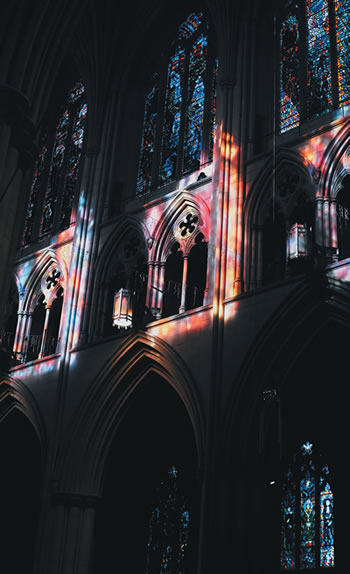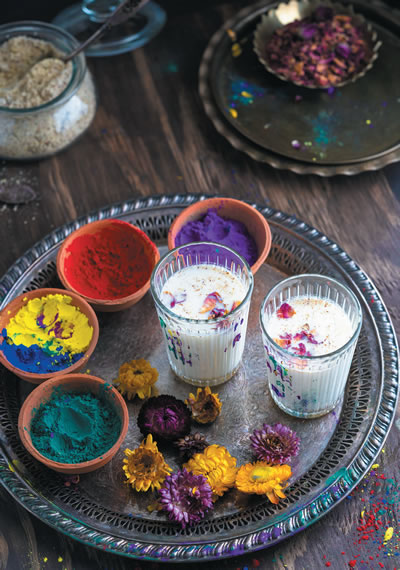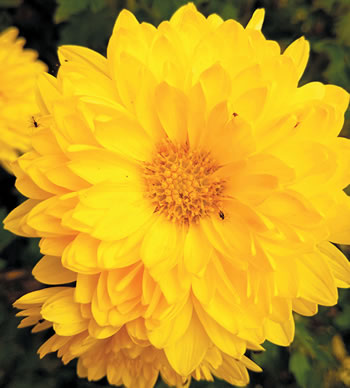
On May 20, 2023, the Diocese of Karachi reached 75 years. Established on May 24, 1948, the Inaugural Mass of the Jubilee Year was celebrated on Pentecost Sunday, May 28, 2023.
Karachi used to be part of the Archdiocese of Bombay (Mumbai) but separated from it in 1947 with the creation of Pakistan when, with a population of approximately 400,000, it became the capital of the new country. Archbishop Benny Travas emphasized in his homily the theme of the Jubilee Year — reflect, rejoice, renew— and with the chosen Biblical verse from Ezekiel 36:26: “A new heart I will give you and a new spirit I will put in you.”
 It is believed that St. Thomas the Apostle passed through the territory of the present archdiocese on his journey to South India. At the beginning of the seventeenth century, Augustinian Missionaries came on mission to the Sindh Province. Because of the persecution they suffered they had to leave and were succeeded by the Discalced Carmelites, who remained until 1672. After the conquest of Sindh by the British in 1842–43, the Carmelites returned to this territory as chaplains to the troops. They remained until 1852, when the Capuchin Fathers took charge. In 1856, the Jesuit priests took over until 1935. There are about 200,000 Catholics in sixeteen parishes spread throughout the megacity of Karachi, now with a population of approximately eighteen million.
It is believed that St. Thomas the Apostle passed through the territory of the present archdiocese on his journey to South India. At the beginning of the seventeenth century, Augustinian Missionaries came on mission to the Sindh Province. Because of the persecution they suffered they had to leave and were succeeded by the Discalced Carmelites, who remained until 1672. After the conquest of Sindh by the British in 1842–43, the Carmelites returned to this territory as chaplains to the troops. They remained until 1852, when the Capuchin Fathers took charge. In 1856, the Jesuit priests took over until 1935. There are about 200,000 Catholics in sixeteen parishes spread throughout the megacity of Karachi, now with a population of approximately eighteen million.
Bishop Benny stated, “God granted the diocese a generous heart, welcoming many ethnic groups, Goans, Anglo-Indians, South Indians, Sindhis, Punjabis, Mangalorians, Parkari Kholis, and many others. Missionaries, foreign and local, built institutions for the needs of these people — orphans, lepers, physically and mentally challenged, those in need of medical care, those with addictions and so on. The diocese also tries to provide education and healthcare to the people of Karachi through schools, hospitals, colleges, and clinics.”
Throughout the years, the diocese has faced numerous challenges, both internal and external, including political unrest, economic fluctuations and social upheavals. The journey has also witnessed significant milestones in fostering interfaith dialogue and ecumenism. Recognizing the importance of religious harmony and peaceful coexistence, the church engages in dialogue with members of other faith traditions. Through these efforts, bridges have been built and mutual understanding fostered, leading to a more inclusive and harmonious society.
St. Patrick’s Cathedral is situated in the heart of Karachi and was opened in 1878. Irish soldiers who served in the British Army contributed generously to the cost of its construction. Recently, the Sindh Government refurbished and strengthened this impressive cathedral. As the people arrived to enter the compound, they had to go through solid security checks so that nothing untoward would happen. The start time was given as 5 p.m., so Mass started at 5:40 p.m. The summer sun pierced intermittently through the clouds, and people wiped sweat from their faces. At times, a gentle wind blew in from the Arabian Sea, giving welcome relief. In the church compound, 5,000 chairs had been arranged for seating. These soon filled up, yet people continued to pour in, resulting in about 2,000 having to stand.
 Among the congregation were about 700 Parkari Kholi tribal people. At Christmas 2020, I took up an appointment to be on mission with these people. Over recent years, many of them have come from Interior Sindh to Karachi in the hope of obtaining work in factories and a better future for their children. They have fled from the unjust landlord system where they labored as landless peasant farmers. “A new heart I will give you and a new spirit I will put in you” ~ Ezekiel 36:26 Many still work as peasant farmers on landlord properties in villages situated to the east of Karachi. They were invited to the Jubilee Mass and given the privilege of praying a prayer in the Parkari language; a family was involved in the offertory procession, and three young women presented a graceful liturgical movement called “Arti,” with its accompanying hymn, at the time of the doxology. These three young women had left their village and farm work so that a teacher could prepare them well for the “Arti.”
Among the congregation were about 700 Parkari Kholi tribal people. At Christmas 2020, I took up an appointment to be on mission with these people. Over recent years, many of them have come from Interior Sindh to Karachi in the hope of obtaining work in factories and a better future for their children. They have fled from the unjust landlord system where they labored as landless peasant farmers. “A new heart I will give you and a new spirit I will put in you” ~ Ezekiel 36:26 Many still work as peasant farmers on landlord properties in villages situated to the east of Karachi. They were invited to the Jubilee Mass and given the privilege of praying a prayer in the Parkari language; a family was involved in the offertory procession, and three young women presented a graceful liturgical movement called “Arti,” with its accompanying hymn, at the time of the doxology. These three young women had left their village and farm work so that a teacher could prepare them well for the “Arti.”
The Missionary Sisters of Charity are also on mission with the Parkaris. They visited the villages and had a “hair cutting and bathing day,” while the buffaloes and goats looked on. Four buses transported about 500 people, including adults, children and infants, who happily piled aboard. Travel to the city of Karachi from the villages took a few hours. For most of these people, it was the first time they had seen the bustling city and their eyes opened wide. “We did not imagine in our minds that there would be such high buildings,” they declared.
Before the Our Father prayer, the commentator invited the Parkari Kholi Catholic young women from the village to perform the prayerful liturgical “Arti.” He explained: “Liturgy is diverse. It is the glorification of God and the sanctification of the people. When liturgy meets culture, we become one with the soil. It is a welcome to Jesus present in the Eucharist. It also acknowledges the presence of the loving Trinity. The Trinity of love encompasses the people gathered here as well as in all of Creation. God is the source of life. Everything is in God’s hands and without God there is nothing. Jesus is our teacher, and we are His disciples.”
“I invite each and every one of you during this Diamond Jubilee Year to reflect, rejoice and be renewed so that truly we may all have a New Heart and a New Spirit.”
During the Mass, hundreds of hawks circled in the sky, some soaring high, others swooping low. People on roofs of nearby buildings had “bird’s eye views” of the celebrations. Boys flying kites in the streets added to the Pentecost Spirit as the kites fluttered above. A red kite appeared above the altar at the time of Consecration. The distribution of Holy Communion coincided with the sunset, and from the loudspeaker of a nearby mosque “Allah-O-Akbar” (God is Great) rang out for all to hear. When the drone camera appeared above, a tribal man commented, “I thought it was Jesus coming down.” Karachi, the city of lights,” then lit up, and Mass concluded with fireworks. “We suddenly ducked down as we thought a bomb had exploded,” declared some of the Parkari people. St. Patrick’s Cathedral and compound had become the “Bright Shining Light of Karachi.”
 In conclusion, Bishop Benny stated, “I invite each and every one of you during this Diamond Jubilee Year to reflect, rejoice and be renewed so that truly we may all have a New Heart and a New Spirit.”
In conclusion, Bishop Benny stated, “I invite each and every one of you during this Diamond Jubilee Year to reflect, rejoice and be renewed so that truly we may all have a New Heart and a New Spirit.”
The local Christians asked the Parkari people, “Where are you from? Are you from the desert area? What are these clothes and many bangles that you wear? What is this language that you speak? Are you Christians?” The tribal women were surprised when they noticed that many city women were not covering their heads with a dupatta (head cloth). The Karachi people said, “Thank you for coming to the Jubilee Mass. We did not know of your existence and so it was a joy for us to pray together.” The Parkaris felt a warm welcome and acceptance from the Karachi Catholics. They reflected, “We felt as one with the City Christians. We saw and now we believe that we are not only a few Christians but very many.” A local priest commented, “It is historical that, with the tribal people from the villages present for the first time, the Diocese of Karachi was visible in all of its dimensions.” This experience captured something of the Spirit of a Church of Synodality that Pope Francis is calling forth with his vision.
It was wonderful that Columban Fr .Joseph Joyce was present, as a week later he retired from mission in Pakistan and returned to Ireland. Fr. Joe had been on mission in Pakistan for 30 years. His humble, loving, kind and committed service to the Church and people of Pakistan had also given new Heart and Spirit to those he journeyed with.
The Parkari Kholi people, full of the fruits of the Holy Spirit, boarded their buses for the return journey to their simple life in the villages. On the way, the Army Rangers stopped the bus and checked them over. On looking inside, they noticed many hammocks and inquired, “What are these and who are you?” They replied, “These hammocks have our babies sleeping in them, and we are Christians and have been to celebrate our feast day.” Some males traveling on the roof of the bus went to sleep and, on arrival at the village, had to be woken up. The next morning, they were back attending their recently opened village school, then tilling Mother Earth and talking about the wonderful experiences of the previous day, which they treasured
Columban Fr. Daniel O’Connor lives and works in Pakistan.